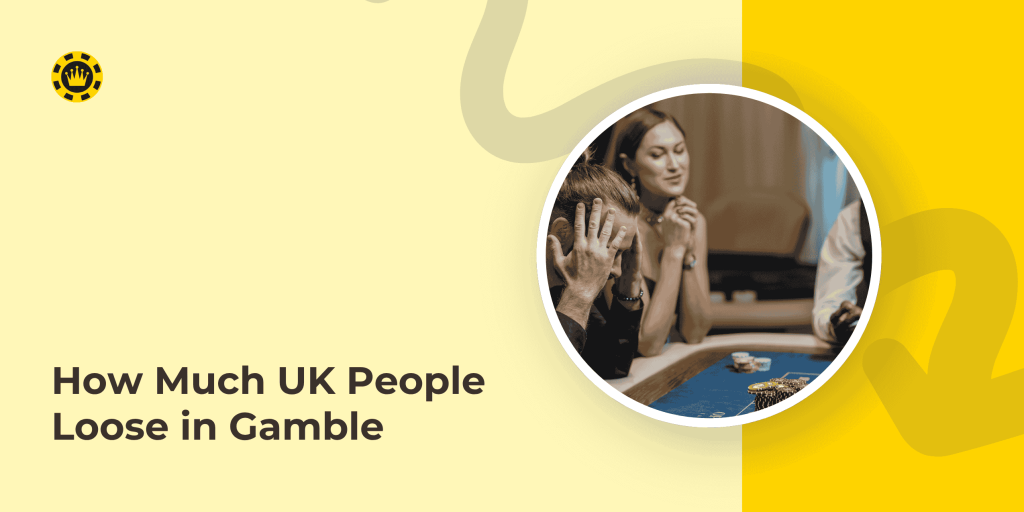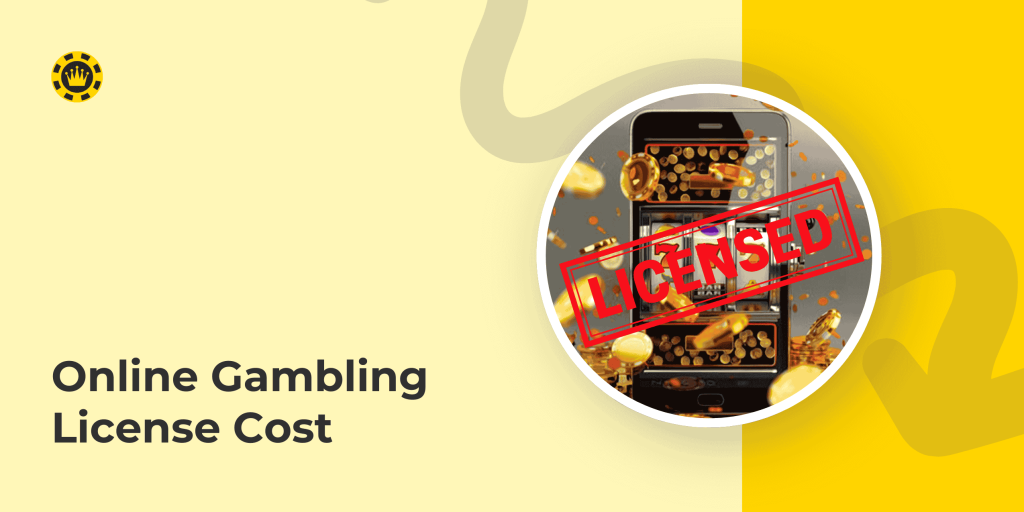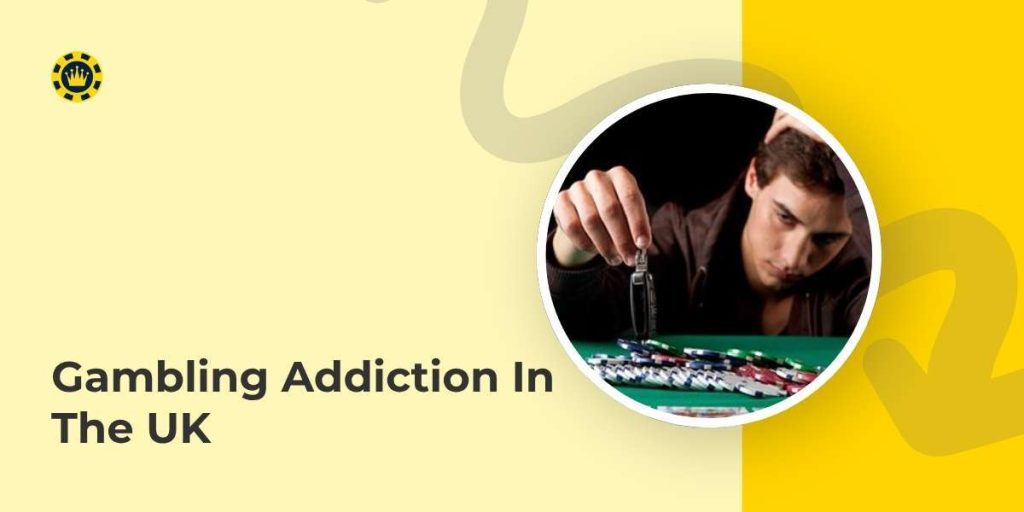Gambling affects more than the cash you put on a game. Many ask does gambling affect your credit score or even a mortgage. The bet itself is not written on your report, but the money habits linked to it often matter.
Late card bills or gambling transactions on bank statement records can pull your score down. Even small slips with debt or loans can give lenders the wrong idea.
That worry grows with home loans. Can gambling affect mortgage approval, or will gambling affect my mortgage application? Many have faced refused mortgage due to gambling, and understanding why makes all the difference in what comes next.
Gambling and Credit Scores: Key Takeaways
- Gambling transactions don’t appear on credit reports, but financial behaviors linked to gambling can severely damage your credit score.
- Using credit to fund gambling through cash advances, loans, or credit cards can lead to missed payments and defaults that stay on your credit report for 6 years.
- Protecting your credit score requires responsible gambling practices, using only disposable income, and seeking help early if gambling becomes problematic.
Gambling and Credit Score Relation
Understanding the relationship between gambling and credit scores starts with knowing what affects your credit and being aware of the legal backdrop. In the UK, the UK gambling laws help frame both the financial and regulatory risks.
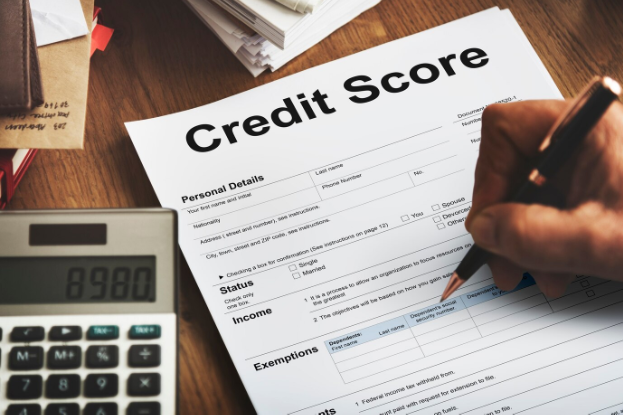
Credit scores are calculated based on five key factors:
- Payment history (35%)
- Amounts owed (30%)
- Length of credit history (15%)
- New credit (10%)
- Credit mix (10%)
These components focus exclusively on how you manage credit, not on how you spend your money.
Visiting a casino, placing online bets, or buying lottery tickets does not appear on your credit report. Credit reference agencies like Experian, Equifax, and TransUnion don’t have access to your gambling transactions or bank statements.
Whether you win big or lose everything, these outcomes don’t directly influence your creditworthiness in the eyes of lenders. But gambling can still harm your credit score.
How Can Gambling Harm Your Credit Score?
While gambling itself isn’t visible on credit reports, the financial behaviors that often accompany excessive gambling can severely damage your credit health.
1. Debt Accumulation
When gambling exceeds your budget, the temptation to use credit becomes dangerous, often leading to mounting credit card debt from costly cash advances with interest rates as high as 25% APR.
Payday loans, often used as quick gambling funds, can charge annual rates approaching 400%. Missing payments on these high-interest debts directly impacts your payment history, the most crucial factor in credit scoring.
Additionally, high credit utilization (using more than 30% of available credit) signals financial stress to lenders. In the UK, gambling losses show just how widespread the issue has become, with many falling into debt chasing wins.
2. Collection Accounts
Unpaid gambling debts often end up with collection agencies. Once an account enters collections, it appears on your credit report and can drop your score by 100 points or more, creating serious issues with gambling and mortgages when lenders review applications.
These negative marks remain visible for seven years, making it difficult to secure favorable interest rates or new credit approvals during that time.
2. Bankruptcy
When gambling debts become overwhelming, some turn to bankruptcy as a last resort. This decision carries severe consequences, potentially dropping credit scores by 200 points or more.
Bankruptcy remains on credit reports for 7-10 years, creating long-term barriers to credit access, housing rentals, and even employment opportunities.
4. Financial Instability and Poor Financial Decisions
Problem gambling, particularly through activities like score betting, often leads to neglecting essential bills as funds get diverted to wagers. Late payments on utilities, rent, or mortgages can then damage your credit score.
Bank account overdrafts and bounced checks, while not directly reported to credit bureaus, can lead to account closures and difficulty establishing new banking relationships. Lenders also review gambling on bank statement mortgage applications closely, and frequent patterns can raise serious concerns.
Factors That Don’t Directly Affect Your Credit Score
To avoid unnecessary concern, it’s important to understand which gambling-related activities have no direct impact on your credit:
- Gambling wins or losses, regardless of the amount.
- Frequency of casino visits or online betting sessions.
- Casino loyalty program memberships.
- Using gambling blocks on bank accounts.
How To Protect Your Credit Score While Gambling?
Safeguarding your credit score while enjoying occasional gambling requires disciplined financial management.
Establish firm gambling limits before you start and never exceed them. Create a separate entertainment budget that includes gambling expenses, using only disposable income you can afford to lose.
Never use credit cards, loans, or cash advances to fund gambling activities.
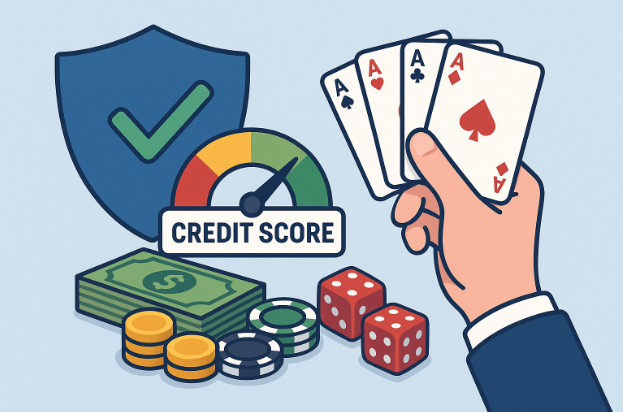
Maintain responsible financial habits by paying all bills on time and keeping credit card balances below 30% of your limit. Monitor your credit report regularly through free annual checks to catch any errors or unauthorized activities.
Consider using gambling blocking tools offered by banks, or learn how to block gambling sites effectively to prevent impulsive decisions that could threaten your financial stability.
Seeking Help for Getting Out of Problem Gambling
Problem gambling in the UK is a recognised addiction that requires professional support. If gambling is affecting your financial health, seeking help is a sign of strength, not weakness.
Several organizations offer confidential assistance. In the UK, GamCare provides a 24/7 National Gambling Helpline (0808 8020 133) and online support services. GAMSTOP offers self-exclusion from online gambling sites.
These resources connect you with counseling, debt advice, and support groups to help regain control of your finances. Even celebrities who gamble have faced similar struggles, showing that gambling problems can affect anyone.
Gambling & Finance Guides:
Conclusion: Gambling Can Indirectly Affect Mortgage Approvals
Gambling doesn’t show up on your credit report, but the way you handle money around it can hurt your credit score and even affect a mortgage application. Missed bills or gambling on bank statements may worry lenders.
Keeping control is key, use spare money only, avoid loans for betting, and pay bills on time to protect your credit rating.
If gambling is starting to cause debt or mortgage problems, reach out for help early through trusted support services.
FAQs
No, credit reports do not show where or how you gamble. But if you borrow money to gamble and miss payments, that will appear and hurt your credit score.
No, using a gambling block from your bank or card does not affect your credit score. Only your bank knows about it.
You can add a note called a “Notice of Correction” to your credit report. It tells lenders to check your credit applications more carefully. It may help, but it does not stop credit being given.
Only if the debt is in both your names, if it is a joint account, you are both responsible. If it is only in their name, you are not liable.
GAMSTOP uses soft credit checks to confirm who you are. These do not affect your credit score and other lenders cannot see them. Only hard checks, like when you apply for credit, can affect your score.
Missed payments and defaults stay on your credit report for 6 years from when they happened. They affect your score less over time, but lenders can still see them.
Yes, formal debt solutions like IVAs stay on your credit report for 6 years. Informal plans like debt management plans don’t show, but any missed payments before starting them usually will.



